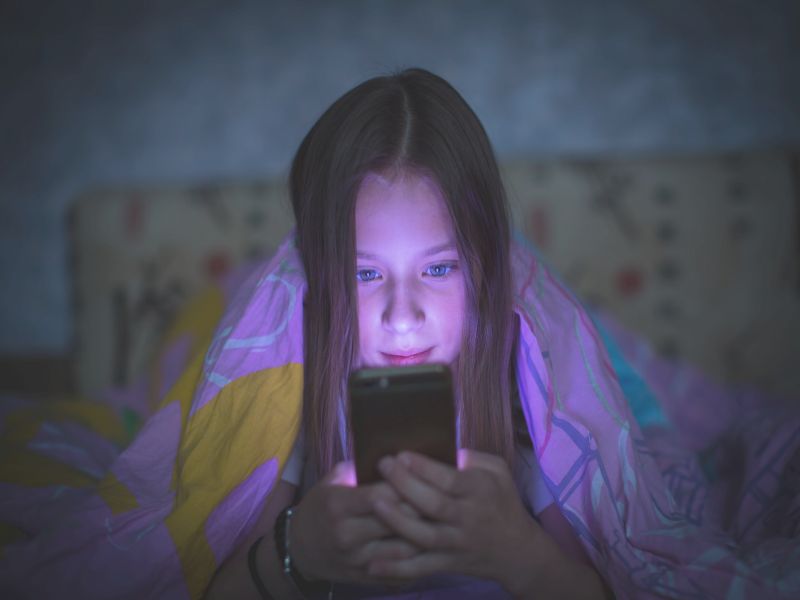WEDNESDAY, Aug 14, 2019 (HealthDay News) — Bingeing on social media isn’t good for any teen, but new research has pinpointed three ways in which hours spent on Instagram, Twitter, Snapchat and Facebook may harm the mental health of young girls in particular.
“Almost all of the influence of social media on mental health could be explained by the three mechanisms examined — namely experiencing cyberbullying, sleeping for less than eight hours a night and reduced physical activity — all of which have known effects on mental health,” said researcher Dasha Nicholls, a reader in child psychiatry at Imperial College London.
“The influence of these mechanisms in boys was much less marked, however, and it is likely that other mechanisms are operating that we were unable to explore,” she added.
Girls use social media much more than boys, Nicholls explained, and girls may use social media differently than boys. They also are exposed to and react differently to the content they see, she noted.
“It’s important to keep a balance, so that social media does not displace other activities that are important for mental health,” Nicholls said.
Another expert said social media is a mixed bag for teens.
Social media use does not necessarily need to be harmful, said Ann DeSmet, a post-doctorate fellow in health science at Ghent University in Belgium.
It can reduce loneliness, but can also increase exposure to harmful outcomes, such as cyberbullying, said DeSmet, who authored an editorial that accompanied the study.
“It is harmful if it displaces time that would be spent on healthy lifestyles, such as physical activity and sleep, or when it increases involvement in cyberbullying,” she said.
For the study, Nicholls and her colleagues interviewed roughly 10,000 teens from almost 1,000 schools in England. Over three years, the researchers checked how much time teens spent on social media. They defined heavy use as using apps like Facebook, Instagram, Twitter, Snapchat and WhatsApp three or more times a day.
Nicholls team found that in 2013, 43% of boys used social media throughout the day, compared with 51% of girls. In 2014, social media use had jumped to 51% of boys and 68% of girls. By 2015, 69% of boys and 75% of girls used social media multiple times a day.
Among girls, the more often they used social media, the more psychological distress they suffered, the findings suggested. In 2014, 28% of girls who used social media a lot reported psychological distress, compared with 20% of those who used it weekly or less. This effect was not as clear in boys, the study authors noted.
Moreover, a well-being survey found that girls who used social media very often were likely to report lower life satisfaction and happiness, and greater anxiety in 2015. This relationship wasn’t seen among boys, the researchers noted.
Well-being in girls was affected most by cyberbullying, poor sleep and lack of physical activity. Nearly 60% of psychological distress was caused by these factors.
These factors accounted for only 12% of psychological distress among boys who used social media frequently, the researchers said.
The differences between boys and girls might be that girls start with higher levels of anxiety. Also, cyberbullying is more common among girls, Nicholls noted.
The findings were published online Aug. 13 in The Lancet Child & Adolescent Health.
Dr. Anne Glowinski, a professor of child psychiatry at Washington University School of Medicine in St. Louis, said that parents should be aware of how much time their children are spending on social media and what they are doing there.
Also, parents should set guidelines about social media use.
“Parents tend to go all or nothing,” she said. “One of the scenarios I see is that a kid gets handed the smartphone, does whatever they want, and then boom, something bad happens.”
Giving a kid a smartphone should come with guidelines, Glowinski said.
Also, parents should be concerned if their child is not interacting with real people, or is gaining weight or not engaging in physical activity, or sleeping poorly. These can be signs of emotional problems, she said.
More information
For more on teens and social media, head to the Pew Research Center.
Copyright © 2024 HealthDay. All rights reserved.

